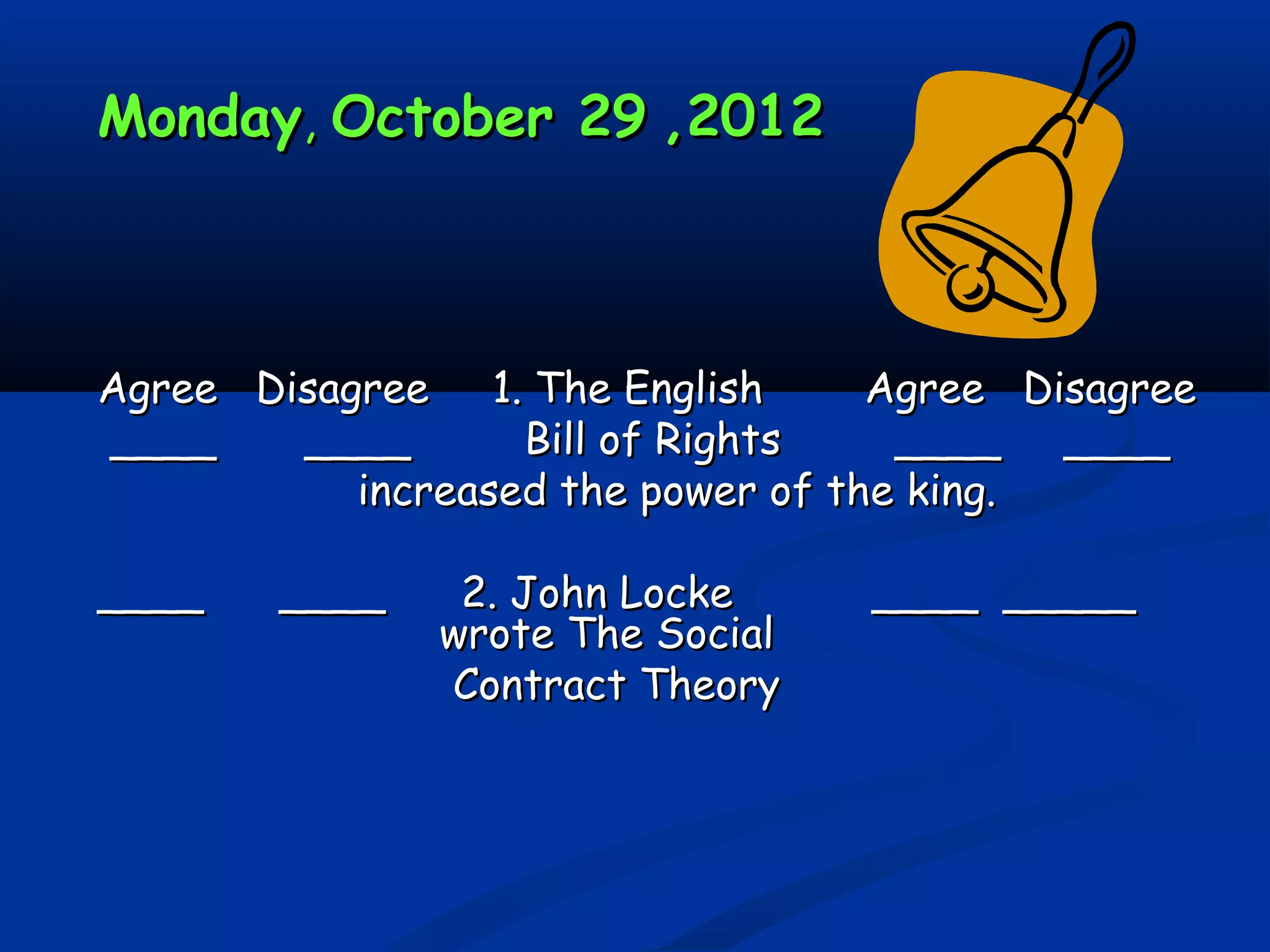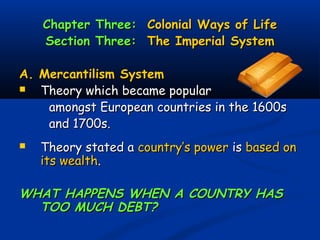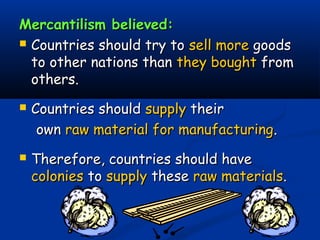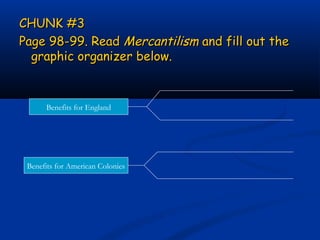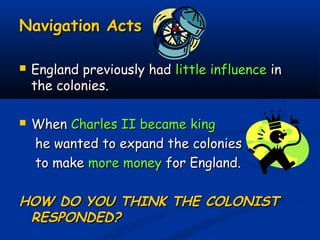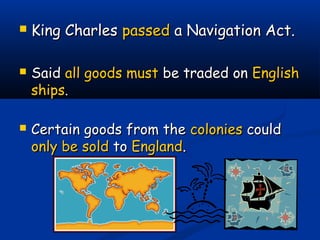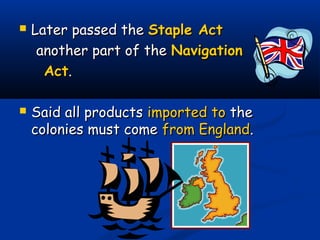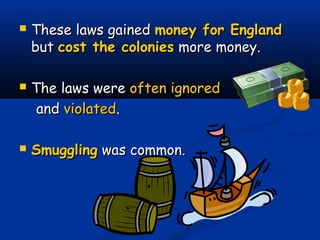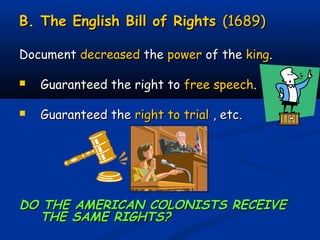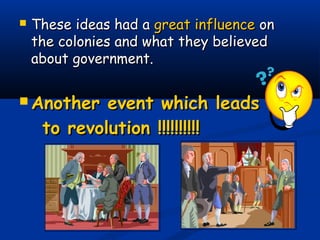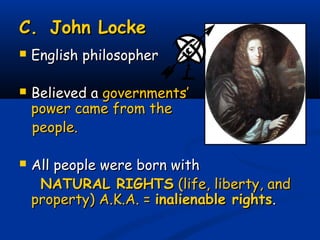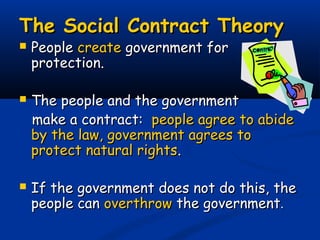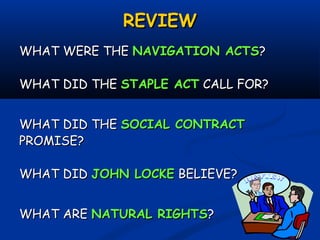1. The document discusses key events and ideas that influenced colonial life and led to the American Revolution, including the mercantilism system, Navigation Acts, English Bill of Rights, and John Locke's Social Contract Theory.
2. The Navigation Acts required colonists to only trade with England and on English ships in order to generate wealth for the mother country. However, the laws were often ignored and violated by colonists and led to smuggling.
3. John Locke's Social Contract Theory posited that people form governments to protect natural rights like life, liberty, and property, and have a right to overthrow governments that fail to do so. His ideas, along with the English Bill of Rights,
